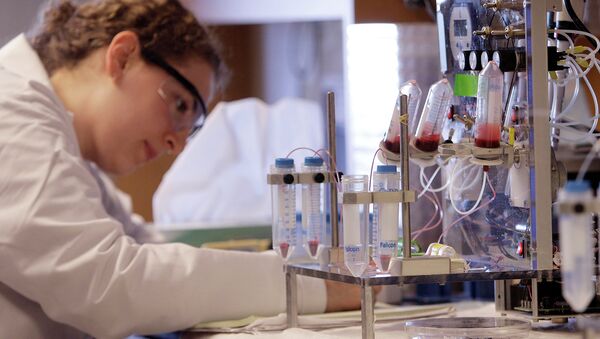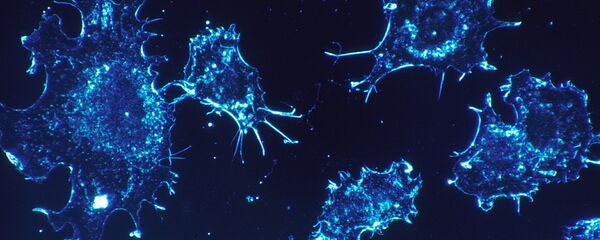Paul Pharoah: The potential for detecting cancer using a blood test is enormous. This test has really been just the first step in the development of something as effective as that, so it’s exciting that there’s a lot of work to be done to show that it really is going to be as useful as a screen test.
Sputnik: I know there is currently something that’s called an oncological marker that can also be tested for. How different is this kind of testing from what’s available [in terms of] oncological markers testing?
Paul Pharoah: Testing the proteins in the blood has been around for many years now, for example Prostate-specific antigen (PSA) is a blood test that’s being used to detect prostate cancer early, and we’ve known about it for many years. What’s really new about this test is that they have combined multiple markers for different cancers; and also they are using something called circulating tumor DNA. So detecting DNA in the blood that is being released by cancer into the blood stream enables you to detect the presence of cancer. However, we already know that this test can detect cancers that have already been diagnosed. At the beginning of this piece it was counted that the test will be administered to a thousand early cancers, but it wasn’t the thousand early cancers – many of the cancers that were tested for were advanced cancers. So, showing that these tests detect advanced cancers is a long way from showing that they really do detect early cancers.
Sputnik: And I think that that is one of the most important possible implications for this kind of testing – if we were able to attack cancer in its early stages it would then be able to help improve survival rates, thanks to the possibilities of diagnosis and treatment. When we hear about the results of the tests so far, I believe it was about 70 per cent. Is that something really to be excited about? And that’s the people who have already shown they have cancer.
Paul Pharoah: If it was to be useful you would need a higher sensitivity (70 percent is what we call sensitivity). And that’s the probability that the test is positive with somebody who has cancer. It would need to be higher than that, and in particular it would need to be higher than that in very early cancers. In this study, in the earliest stage cancers (the stage 1 cancers) the test was only 40 per cent sensitive, meaning it missed 60 per cent to be as early cancers. While the test has potential, there’s a lot of work to improve its sensitivity, that’s a shorter level that we would need for it to be a useful screening test, for example.
READ MORE: Sticking Plaster Approach Will Not Mask Britain's NHS Cash Crisis, Report Warns
Sputnik: As I understand, there will be a subsequent phase of testing, is that correct?
Paul Pharoah: Indeed, there will be the next phase of testing – essentially a much larger study. Although a thousand patients sounds like a lot, you actually need to work with even larger studies, and those studies need to be of people without cancer or people with very very early stage cancer in larger numbers — the most difficult and time consuming [test] to do.
The views and opinions expressed by Paul Pharoah are those of the speaker and do not necessarily reflect Sputnik's position.


